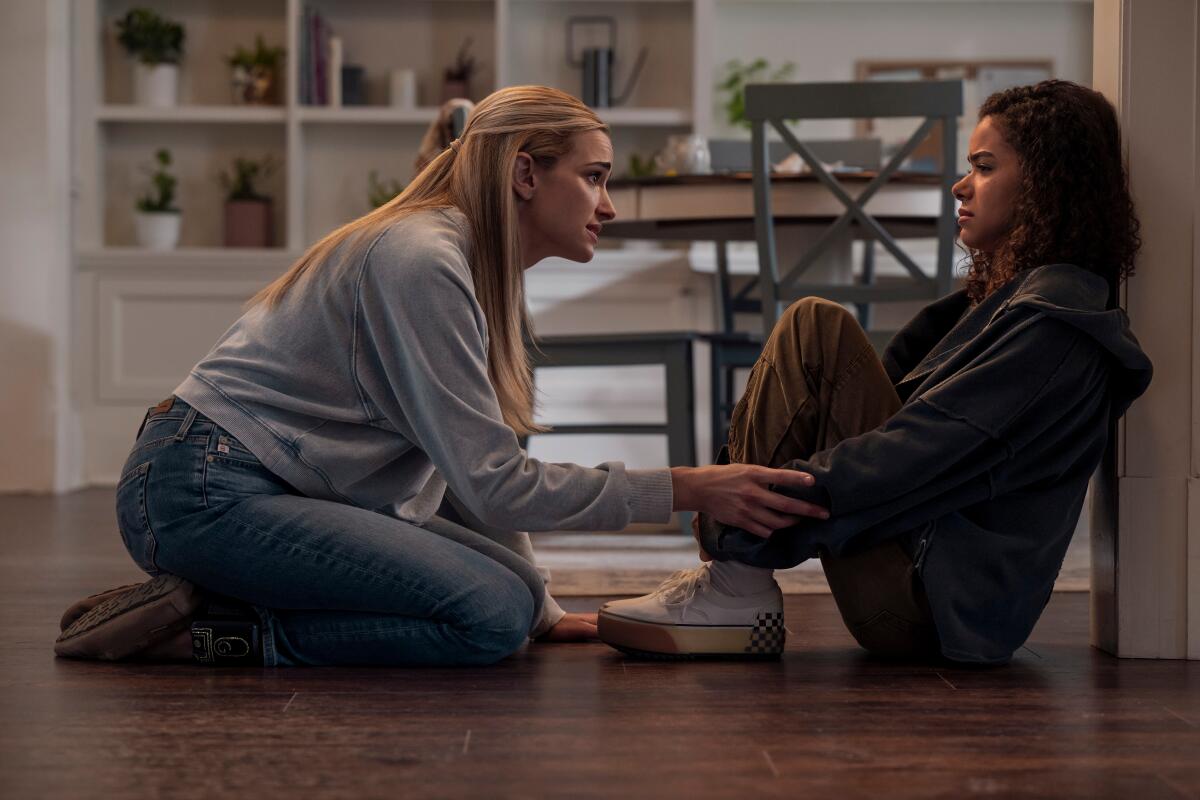‘Ginny & Georgia’ shows how abortion is a personal experience

The series: “Ginny & Georgia.”
The setting: A women’s healthcare clinic.
The scene: Ginny, 16, is carrying an unwanted pregnancy. She’s seeking an abortion. During a preconsultation, a clinic provider asks if she needs more time to decide. No, says the teen, she’s sure.
There’s no proverbial wringing of hands around the character’s decision. No apologizing for her choice. Why? Because it’s not for us to judge. It’s a personal matter, despite all the politicization around reproductive rights that might have us believe otherwise.
Opinions, debates and legislative fights around abortion have raged since Roe vs. Wade was adjudicated by the Supreme Court in 1973, then overturned in 2022. It’s no secret why such a lightning-rod issue is rarely touched by series television. Alienating half the country is bad for ratings. Exceptions include breakthrough moments on shows such as “Maude,” “The Facts of Life” and “Jane the Virgin,” but even those episodes were careful to weigh the sensitivity of the political climate over a transparent depiction of their character’s motivations and experience.
Another pitfall is that subplots featuring abortion storylines are hard to pull off without feeling like a break from scheduled programming for an antiabortion or pro-abortion-rights PSA, or worse, a pointless exercise in bothsidesism.
Season 3 of Netflix dramedy “Ginny & Georgia” dares to go there, unapologetically making the political personal inside a fun, wily and addictive family saga. The series, the streamer’s No. 1 show since it returned two weeks ago, skillfully delivers an intimate narrative that defies judgment and the fear of being judged.
The hourlong series, which launched in 2021, follows single mom Georgia Miller (Brianne Howey), her angsty teenage daughter Ginny (Antonia Gentry) and her young son Austin (Diesel La Torraca). This formerly nomadic trio struggles to forge a “normal” life in the fictional Boston suburb of Wellsbury.
Flamboyant, fast-talking Southerner Georgia stands out among the fussy, provincial New England set. Born in Alabama to drug-addicted parents, she fled her abusive upbringing as a teenager. Homeless, she met Zion (played as an adult by Nathan Mitchell), a college-bound student from a good family. Soon into their relationship, she fell pregnant, giving birth to their daughter Ginny, kicking off a life on the run and in service of protecting her children.

Georgia (Brianne Howey), left, had Ginny as a teenager, and history appears to repeat itself in Season 3 of the show.
(Amanda Matlovich / Netflix)
Now in her 30s, the blond bombshell has relied on her beauty, innate smarts and countless grifts to endure poverty and keep her family intact. The hardscrabble lifestyle has made Ginny wise beyond her years, though she’s not immune to mercurial teen mood swings and the sophomoric drama of high school.
But history appears to repeat itself when Ginny becomes pregnant after having sex just once with a fellow student from her extracurricular poetry class. Overwhelmed, he’s the first person she tells about their dilemma. “That’s wild,” he responds idiotically, before abruptly taking off, leaving her to deal with the pregnancy on her own.
Episode 7 largely revolves around Ginny’s decision to have an abortion, a thoughtfully paced subplot that breaks from the perpetual chaos and deadly secrets permeating the Millers’ universe.
Ginny is painfully aware that she is the product of an unwanted pregnancy and her mother’s choice not to have an abortion. Georgia has repeatedly said her kids are the best thing that ever happened to her. But when counseling her distraught daughter, Georgia says the choice is Ginny’s to make, and no one else’s.
Here’s where “Ginny & Georgia” might have launched into a didactic, pro-abortion-rights lecture cloaked in a TV drama, or played it safe by pulling back and highlighting both women’s stories in equal measure.
Instead it chose to bring viewers in close, following Ginny’s singular experience from her initial shame and panic, to moving conversations with her mom, to that frank counseling session at the women’s health center where she made it quite clear she was not ready to be a mother. We watched her take the medication, then experience what followed: painful cramping, pangs of guilt, waves of relief and the realization she now bore a new, lifelong emotional scar that wasn’t caused by her mother.
By sticking to Ginny’s intimate story, through her perspective, the series delivers a story that is hers and hers alone, partisan opinions be damned.
“Ginny & Georgia” has offered up many surprises over its three seasons. Georgia has emerged one of the more entertaining, cunning and inventive antiheroes of the 2020s. As such, she attracts men in droves, schemes a la Walter White and doesn’t believe in therapy: “We don’t do that in the South. We shoot things and eat butter.”
But therapy might be a good idea given Season 3’s cliffhanger ending: another accidental pregnancy.





